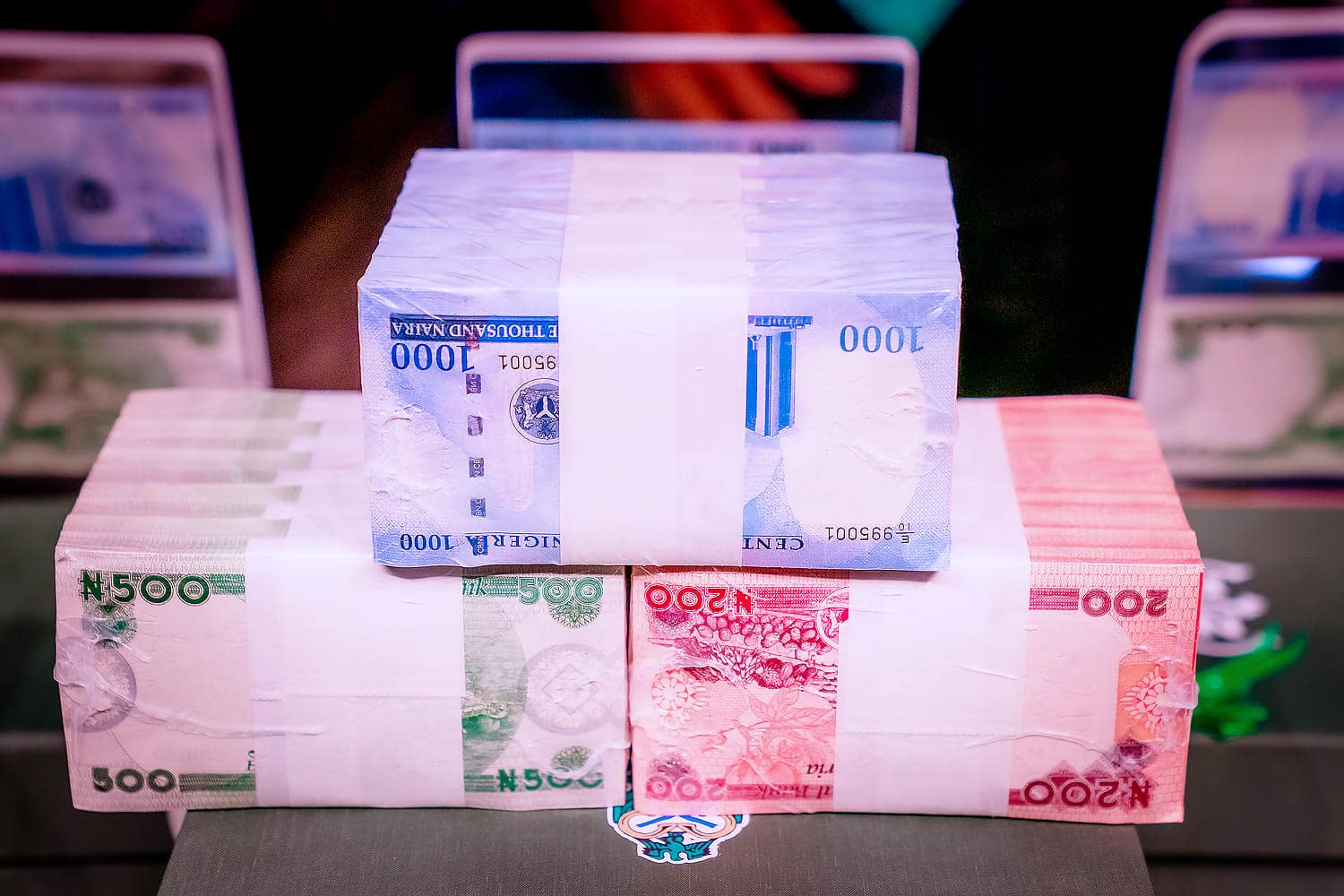Nigeria News
CBN Sends Message To Banks Over Dispense Of New Naira Notes

The Central Bank of Nigeria (CBN) has ordered commercial banks across the country to comply with its earlier directive on the dispense of New Naira Notes on their Automated Teller Machines (ATMs).
A statement dated Monday, January 9, that was credited to the CBN director of currency operations, Ahmed Umar, mandated all the banks to stop loading their ATMs with the old notes as Nigerians lament the circulation of the newly redesigned notes.
Umar said any bank found not complying with the directives would be penalized.
Naija News understands that the apex bank issued the directive at the training session for state directors of the National Orientation Agency (NOA) in Abuja on Monday.
The bank had last week warned the banks against dispensing the new currency notes over the counter and to only make them available via ATMs.
By this, it said there would be a proper flow of the new currency. On Monday, Umar said the purpose of the CBN directive was to implement the January 31 deadline for withdrawing old naira notes in circulation.
“We want to use this training session to pass a message that CBN has enough currency notes to go around the general public,” Umar said.
He added: “We, CBN management, have mandated banks to stop putting old notes in their ATMs. They should only put the new notes.
“And there is a serialisation of the policy that they can put either N500, N1000 or N200 note whichever denomination they have or combination of any of those notes, they should just put a new note in their machines.
“We are going to monitor to ensure that the banks comply and if they don’t, we have a penalty for non-compliance.”
The bank official explained that in many countries across the world, it usually takes a few years to change a currency note design.
He said: “In our own case what we had was basically over 20 years of having the same design of the note.
“Over that period, what it did to us was to create an avenue for some people to master the act of counterfeiting the note. In our own case, what we have is a minimum of 17 years or more for us to redesign our currency.
“If you notice the N1000 note that was introduced in 2005, it took 17 years for us to redesign it. N500 and N200 notes were also redesigned after 21 years and 22 years, respectively.
“So, if currency notes stay too long in the system, there is a tendency that people who counterfeit to make a lot of efforts to produce the same notes.
“So, that is why there is a need to change our notes regularly.”
He said N500 and N1000 naira notes constitute 99 per cent of the currency notes that counterfeiters are targeting.
Umar added: “It is simple logic, the effort you put to counterfeit N1000 is the same effort you put to counterfeit ₦5,” he said.
“So, why will they waste their energy doing small notes; they always target the higher note, particularly N1000, because of values attached to it.”
On his part, the director-general of NOA, Garba Abari, said his agency partnered with the CBN to educate the agency’s staff to assist in enlightening Nigerians on the redesign of the new banknotes policy.



![Police Nab Ex-Immigration Officer Selling Sophisticated Firearms To Bandits In Abuja [Photos]](https://www.naijanews.com/wp-content/uploads/2025/03/Police-NIS-1-400x240.jpeg)
![Police Nab Ex-Immigration Officer Selling Sophisticated Firearms To Bandits In Abuja [Photos]](https://www.naijanews.com/wp-content/uploads/2025/03/Police-NIS-1-80x80.jpeg)







